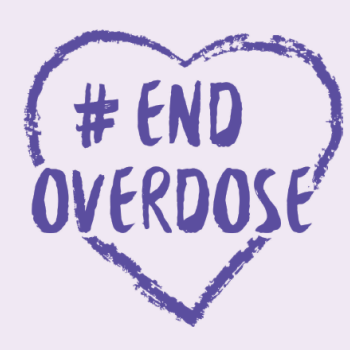Last updated on
August 31 is International Overdose Awareness Day, a global event to raise awareness of overdose and reduce the stigma of a drug-related death. It acknowledges the grief felt by families and friends remembering those who have died or suffered an injury as a result of a drug overdose.
In 2025, we can move beyond awareness. We can organize, show up, and take action, because no one should carry this grief alone. Every story shared, every voice raised and every step we take brings us closer to a future free from overdose.
Overdoses are preventable, and there are steps we can take to stay safer. If you want to help end stigma and save lives, there are things you can do right now.
- Get involved. There are events and activities available across Canada, as well as online options. Visit the International Overdose Awareness Day website to find something near you. Or maybe you have an idea for an event of your own—register here to help others find you.
- Get the word out. There are lots of resources available to support learning and awareness, from posters and fact sheets to graphics for social media. Download and share from the IOAD website.
- Show your support. Use #EndOverdose and #IOAD2025 to share personal stories and add your voice to the conversation on social media. Talking about overdose could save a life. Check out International Overdose Awareness Day on Facebook, X (formerly known as Twitter) and Instagram to stay up to date on the latest news and activities.
- Take time to remember. The overdose crisis has touched all our communities. Light a candle, post a tribute or create an artwork in honour of someone who has lost their life or suffered injury due to overdose.
- Learn how to help. Naloxone is a medication that can temporarily reverse an opioid overdose. Get a naloxone kit to carry with you and learn how to use it with Toward the Heart.
- Have the conversation. Take this opportunity to talk about substance use and overdose awareness with your friends, family and loved ones. Get your friends together for a cup of tea or go for a walk with a family member.
Whether you know someone who uses substances or not, connecting and talking with others can raise awareness and reduce the stigma that prevents people from seeking help. Get informed, get involved, and make space to talk about the toxic drug crisis. Take action today!
Search for substance use resources near you on HelpStartsHere.
Looking for help with substance use or addiction? You're in the right place.
Showing 4 Resources
Overdose Prevention Sites Listings (Toward the Heart)
Locations where people can safely use drugs under supervision of staff trained in emergency response. Services are free.
Opioid Treatment Access Line
Provides confidential and same-day access to opioid agonist treatment medication for people throughout BC with opioid use disorder to prevent withdrawals, reduce cravings and the risk of overdoses.
People can call the access line to speak with a doctor or nurse over the phone who can prescribe the medication and offer connections to supports in the community.
Opioid Agonist Treatment (OAT) Clinics in BC
Find opioid agonist treatment (OAT) clinics accepting new patients in your area.
Bed-Based Treatment and Recovery Services Listings (BCCSU)
Find treatment and supportive recovery services that are live-in or bed-based in a community near you.
